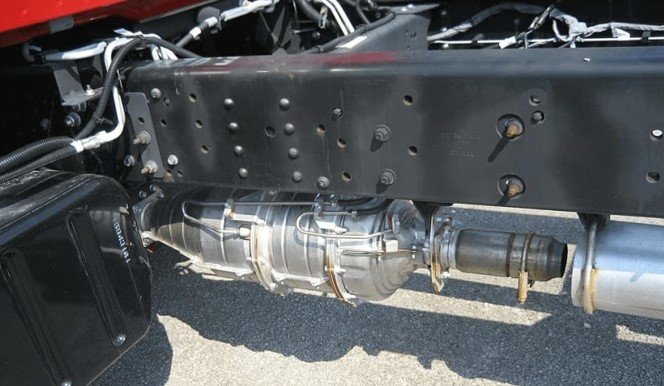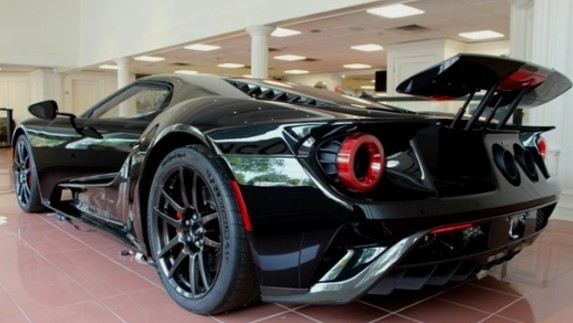2023 Jeep Avenger First Drive Review: Driving the electric Jeep you can’t have
NICE, France – The name Avenger may now be associated with the Marvel pantheon of superheroes, but it also has a long history attached to various brands within the Chrysler empire … or whatever corporate moniker it was going by at the time. Most recently that meant a lamentable Caliber-based midsize Dodge sedan from the 2000s, with a Mitsubishi-based Dodge coupe from the 1990s before that, but elsewhere in the world during the 1970s one could buy a humble sedan that not only went by Dodge Avenger but Chrysler, Hillman, Talbot and Sunbeam Avengers as well. In other words, it was finally Jeep’s turn to avenge.
The 2023 Jeep Avenger arrives at a time when that aforementioned Chrysler empire has been conquered by the French to create the giant Stellantis Group. It is Jeep’s first battery-electric model, which debuts in the U.K. next summer priced from about £34,000, or $41,500, but before you get too excited, know that it’ll be just as available to you in America as that old Talbot Avenger: It’s not coming to the United States.
At 160.8 inches in length, the Avenger is Jeep’s smallest model, 6 inches shorter than even the Renegade and only 28.5 inches longer than the original Willys MB World War II jeep with its Go Devil engine, which is where the whole story began. In Europe, vehicles like the Avenger fall into what is called the B-segment, which is about 20{12dec99aef6f119e349308ab81c83b123ba77cd3d9c980ff09eaac1f958a2724} of all new-car sales, with the SUV/crossover part of it currently bubbling up as one of the fastest-growing sectors.
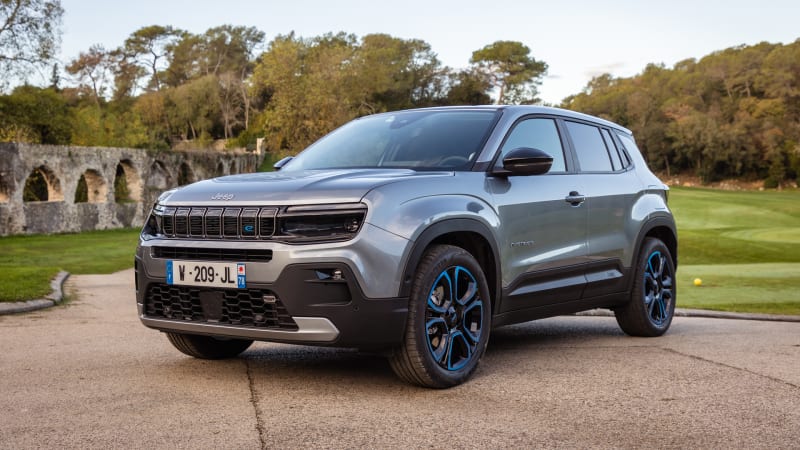
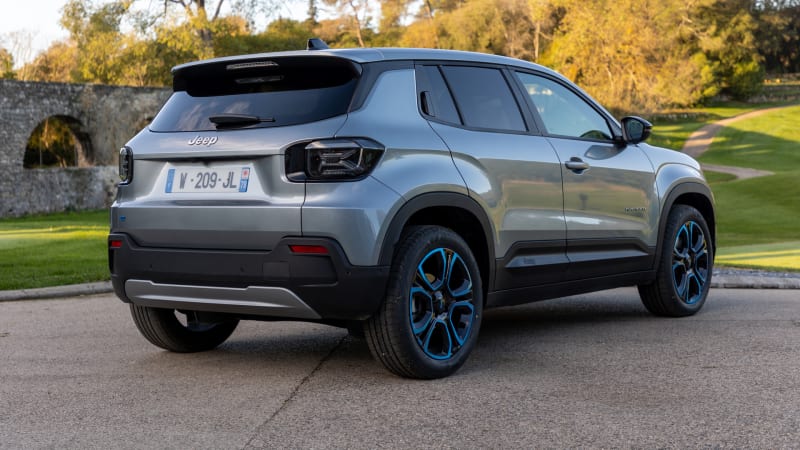
With European bans on new combustion engines looming, plus the Draconian and much-criticized Euro 7 tailpipe emission requirements set to come into force in 2025, carmakers are having to make big changes, fast, and Jeep is no exception. Avenger is the first of four new battery-electric Jeeps arriving before 2025. The others are an electric Cherokee, the provisionally named Wagoneer S, and the small, Wrangler-like Jeep Recon.
Thing is, most contenders in this jam-packed-class of jacked-up B-segment small SUVs are notable mainly for their blandness, lack of driving appeal and almost complete lack of any sort of off-road ability.
So how does the Avenger fare?
The battery is a pretty standard lithium-ion pack with 102 cells, with a gross energy capacity of 54 kilowatt-hours giving a WLTP combined range of 249 miles. An EPA-rated range would almost certainly be shorter and possibly similar to the 217 miles we saw indicated during a briskly driven 42-mile test route. Either way, winter shouldn’t destroy range too much as the Jeep comes equipped with a thermally efficient heat pump heating system.
Unlike most EVs being introduced these days, the Avenger does not employ skateboard-like EV underpinnings of batteries sandwiched between the wheels under the floor. Instead, its 17 battery modules sit on top of a steel underplate and are grouped mainly under the seats, so the footwells are clear and seat heights are lower as a result. It’s a neat system dictated partly because there will be a 1.2-litre gas version of the Avenger sold in Spain and Italy.
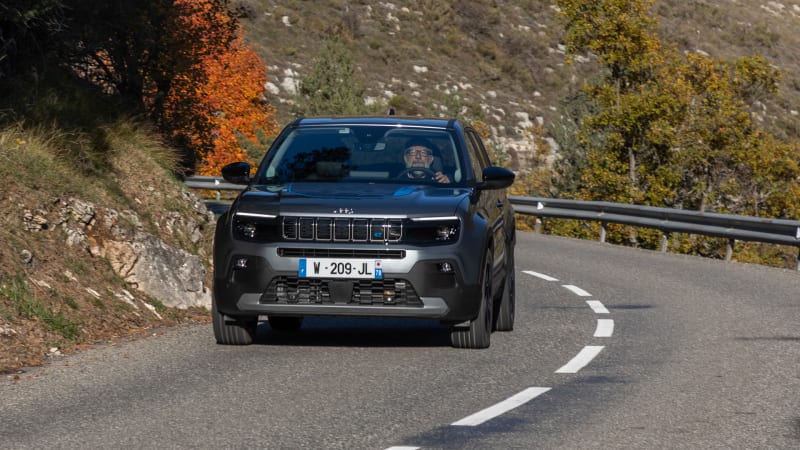
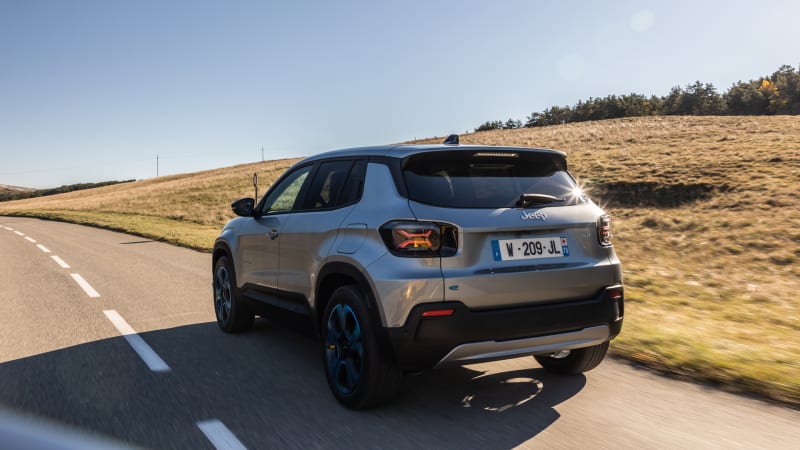
The platform is Stellantis’ eCMP 2, which is shared with Peugeot’s e-208, the e-2008, the DS 3 and Opel/Vauxhall’s Corsa and Mokka electric. Jeep did a lot of work to make it stronger, shorten the overhangs, improved crash structures and enlarge the inner wings to accommodate big-diameter tires and allow more wheel travel. On the same parts-bin raid, Jeep also grabbed the latest electric architecture and battery tech, plus a motor that sends 154 horsepower and 184 pound-feet of torque to the front wheels only. A dual-motor all-wheel-drive version has already been previewed by the Avenger 4×4 Concept, but that won’t show up (again, at European dealerships) until 2024.
So, for the moment, this is a front-drive Jeep, which is sacrilege, I know. That said, the Avenger’s dimensions look pretty good for at least hilly terrain and tough urban streets, not to mention big puddles. It’s a whisker under 70 inches wide and 60 inches high on a 101-inch wheelbase. Short overhangs and decent ground clearance of 7.9 inches means it certainly looks the part, and it’ll ford water up to 9 inches deep. It weighs 3,386 pounds and carries four in comfort, five at a push. There’s no quoted towing weight, so trailer owners should look elsewhere.
Fast-charging capability is quite strong for this segment and price point, with a maximum 100-kilowatt fast charging rate and an 11kW onboard charger. Charge times range from 24 minutes for a 20{12dec99aef6f119e349308ab81c83b123ba77cd3d9c980ff09eaac1f958a2724} to 80{12dec99aef6f119e349308ab81c83b123ba77cd3d9c980ff09eaac1f958a2724} fill on a 100kW DC fast charger (the more common American-market spec is a 10{12dec99aef6f119e349308ab81c83b123ba77cd3d9c980ff09eaac1f958a2724}-80{12dec99aef6f119e349308ab81c83b123ba77cd3d9c980ff09eaac1f958a2724} fill), to eight hours on a 7.4kW U.K.-rated home wall box.
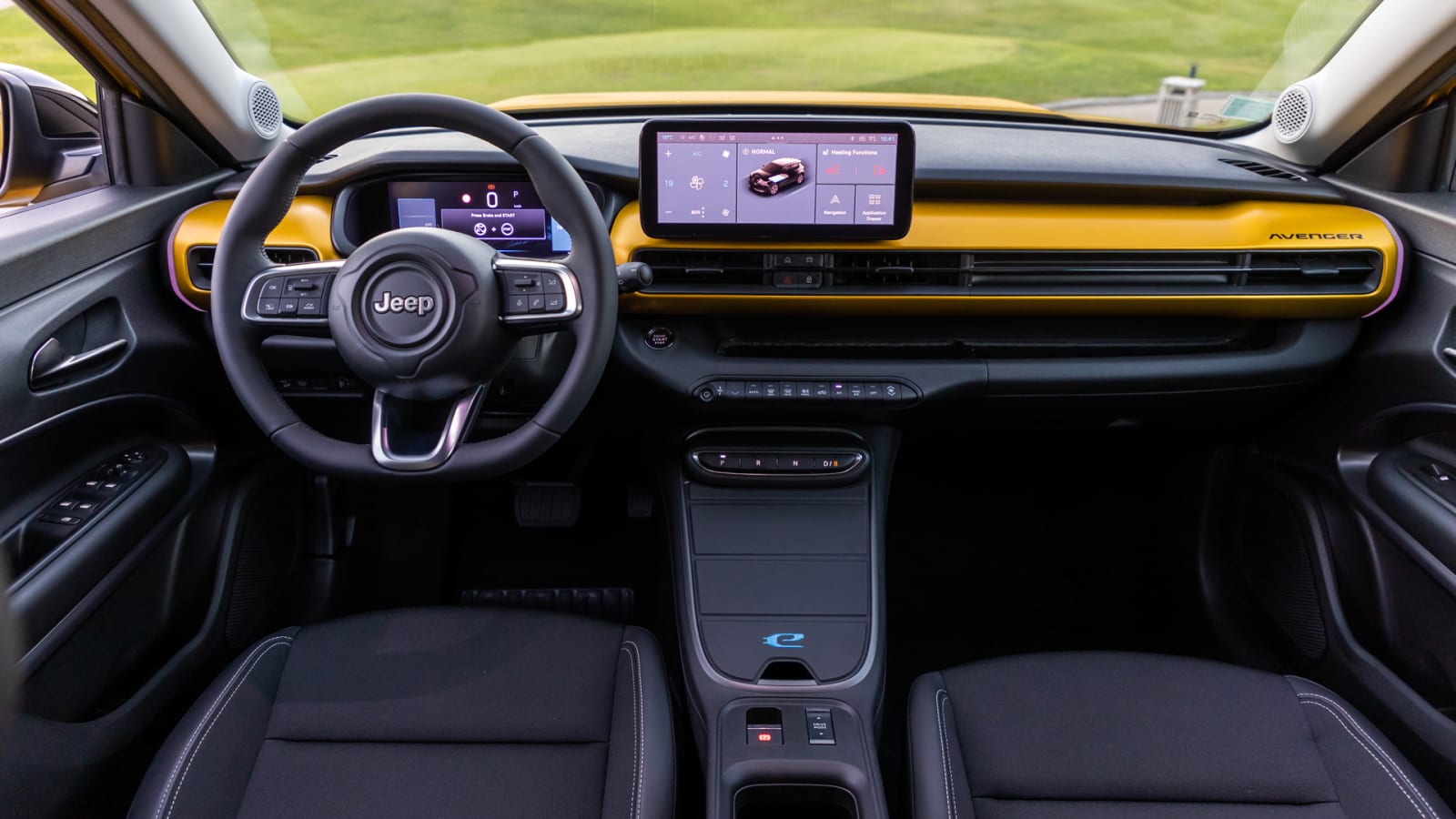
Climb in, and the cabin is compact and intimate, though far from cramped. The passenger sits quite close to the driver, but there are no clashing elbows. In the rear, there’s head- and legroom to spare for a couple of 6-footers on a well-stuffed and comfy bench. Switches are sensitive and easily identified, and the touchscreen and instrument binnacle graphics are nicely realized but not flashy. The indicator repeater sounds like a frog trapped in a box.
This is the First Edition model of Avenger, but there’s a refreshing lack of every option thrown willy nilly at the spec sheet. Seats are still manually adjusted, and there’s a pleasing mechanical operation about everything. The rear seat backs fold 60/40, and the dual-level cargo area floor allows for either a fully flat load floor with that seat lowered, or maximum capacity with it raised. The cargo area itself is hardly massive and is rather high off the ground (old dogs beware), but is usefully wide at 39.4 inches.
There’s evidence of being built to a price, such as the recycled-cat-fur load cover and the shiny plastic dashtop, but that’s not enough to erase the general perception of being well built and thoughtfully designed. Those charcoal plastic body sides for example, might look a bit cheap, but they make this car parking-lot proof with Jeep reckoning that owners could save up to $1,200 in paint and dent repairs during the Avenger’s life.
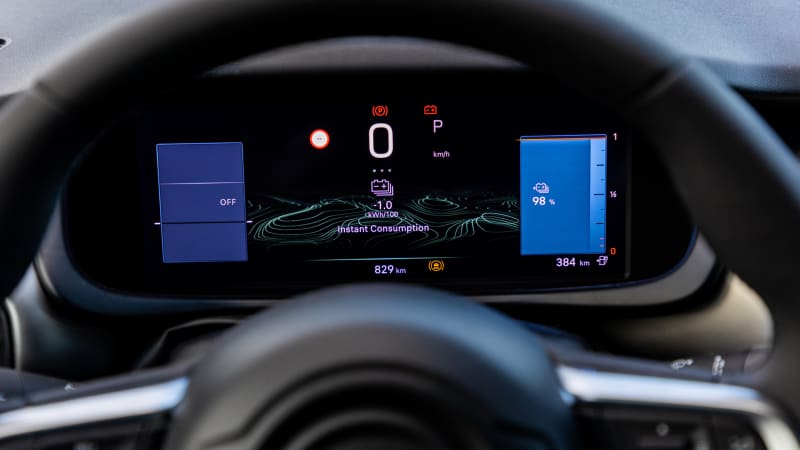
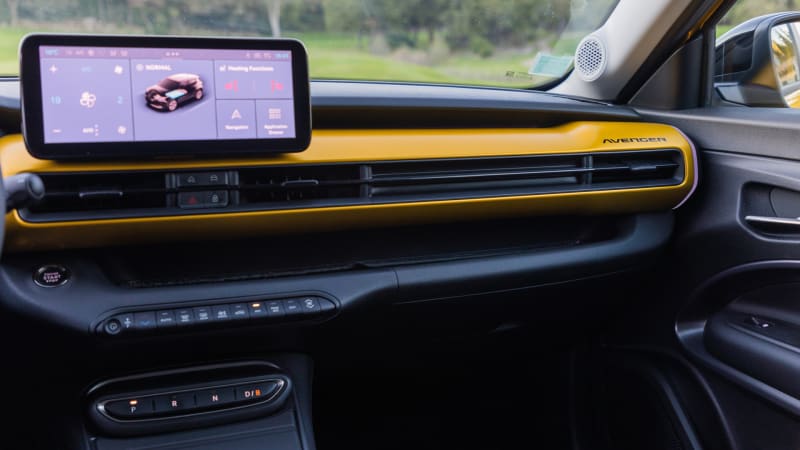
Start her up, and the systems engage without fuss. The accelerator feels progressive, and it’s easy to pull away smoothly even on a slope going forward or backwards, which can be an issue with electric cars. Braking control progression is refined and progressive, and on a broken track in the Alpes-Maritimes, it was possible to trickle down with ease with the regenerated current flowing back into the battery cells.
Upper-trim spec cars get hill descent control, which should get you down off a grassy slope and there are Sand, Mud and Snow driving modes that alter the electronic stability systems and the accelerator action. There’s also a sophisticated braking-based traction control system, which allows some progress when one wheel is in the air, though I wouldn’t be trying anything too ambitious. It definitely is not Trail Rated.
Performance is brisk for a B-segment car sold in Europe and is appropriate for the urban sprawl that’ll be the Avenger’s natural habitat, but by American standards, a 0-62-mph time of 9 seconds won’t be impressing anyone. There are three driving modes, which isn’t unusual, but their ability to actually alter motor output is. Sport provides the whole 156 hp and 192 lb-ft, but Normal restricts you to 109bhp and 162lb-ft, while Eco cuts it down further to a miserly 82 hp and 132 lb-ft.
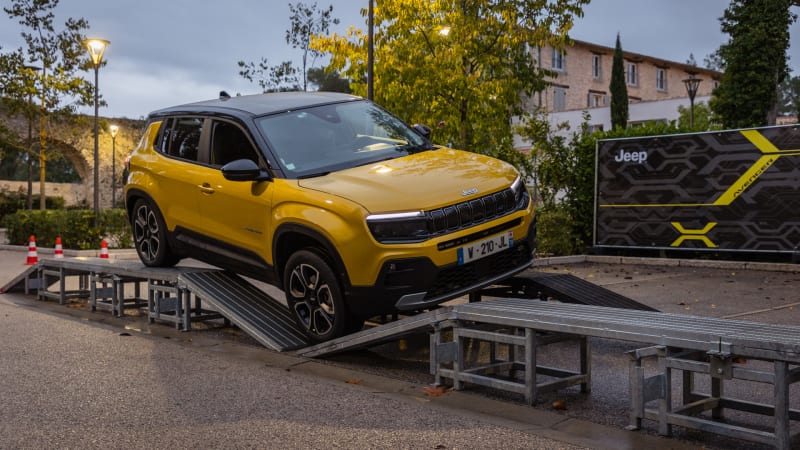
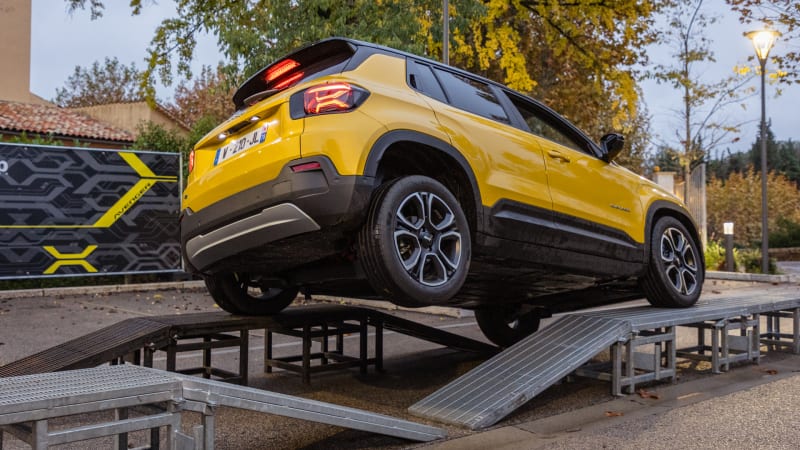
Suspension comprises MacPherson struts at the front with a twist-beam rear, and on well-surfaced roads the Avenger flows neatly from bend to bend with well-contained body roll but not too much side-to-side pitching. It turns in well, with confidence-inspiring handling. The steering is over assisted, but the small turning circle and quite speedy steering-rack ratio helps create an impression of wieldiness, especially around town. That and the compact dimensions and straight-sided body sides makes it quite easy to thread through narrow gaps.
Even on the 18-inch wheels of First Edition, the ride feels supple, only picking up on the worst sharp-edged bumps and potholes. For a tall vehicle, this feels like a well-worked compromise; agile without being overtly stiff. Touring the ‘burbs should be a positive and reasonably comfy experience.
The result is quite a likable and fun-to-drive little thing, with a practical and comfortable cabin. For the rough-and-tough Jeep aficionado, the forthcoming Recon is going to be a better bet, but for the suburban family, the 2023 Jeep Avenger would be an ideal and quite handsome second car. Why it isn’t coming to the States remains a bit of a mystery.
Related video:




